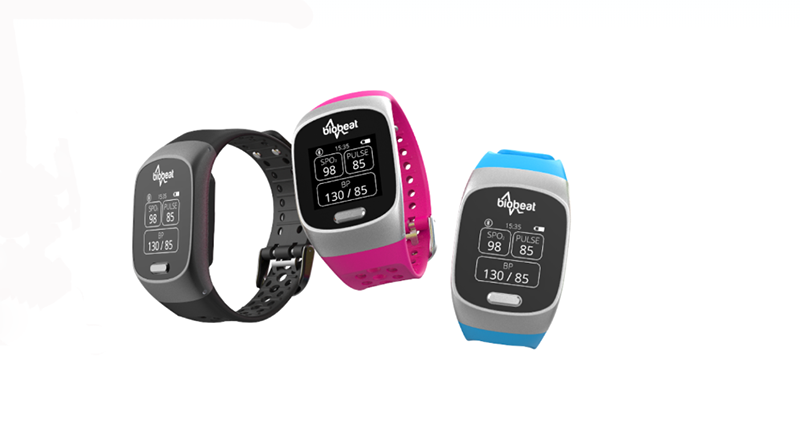Wearable devices such as smartwatches and fitness trackers now allow you to monitor your heart rate without seeing your doctor. But the new generation of wearable devices can do a lot more than just track your heart data. For example, the Apple Watch 4 has made it easier to take an electrocardiogram (ECG) to help screen for serious medical conditions like Atrial Fibrillation (AFib). All you need to do is place your finger on the digital crown, and it tells you whether your heart is beating normally or if the beat is irregular. The EKG app has been cleared by the US Food and Drug Administration (FDA).
Other well-known wearable makers like Fitbit and Garmin aren’t too far behind. Both are developing similar screening features for AFib and sleep apnea. Few startups have also developed wearable devices that monitor vital signs.
BioBeat’s cutting-edge wearable devices provide continuous monitoring, which allow real-time alerts and trend analysis. BioBeat will be speaking and exhibiting at our WT | Wearable Technologies Conference in Munich on February 3-6. Their BioBeat Watch is intended for long period and repeated use. The great feature about this gadget is that it syncs automatically with Bio beat´s app and uploads the latest data gathered on the cloud. The data saved can be accessed anywhere and at any in an ease way. In this case, any patient will be able to understand the result and be triggered by a health decision-making action. And last but not least, caregivers can also monitor the data available on the cloud in real time. With that, they can intervene and contact the patient in case they identify any irregularities.
Related Do We Really Need More Fitbits, Apple Watches and Other Health Wearables?
The BioBeat Patch is a single use monitoring device, working continuously up to 10 days. It provides the same vital signs, as well as one lead ECG when placed over upper left chest. The data is recorded in the device and transmitted to the BioBeat app via WiFi, BT, Cell or RF.
Atkiia is a Swiss startup founded by Mattia Bertschi (CEO) and Josep Sola (CTO), leading experts from the Swiss research institute CSEM in 2018. Its proprietary optical Blood Pressure Monitoring technology (oBPM™) utilizes a combination of optical sensors commonly used to track heart-rate in today’s wearables, and clinically validated software algorithms to measure an individual’s blood pressure at the wrist. The algorithms are embedded in non-medical third-party wearables for preventive purpose to track blood pressure trends, as well as in aktiia’s medical grade wearable to monitor precise blood pressure values that can be used for the diagnosis and management of hypertension.










